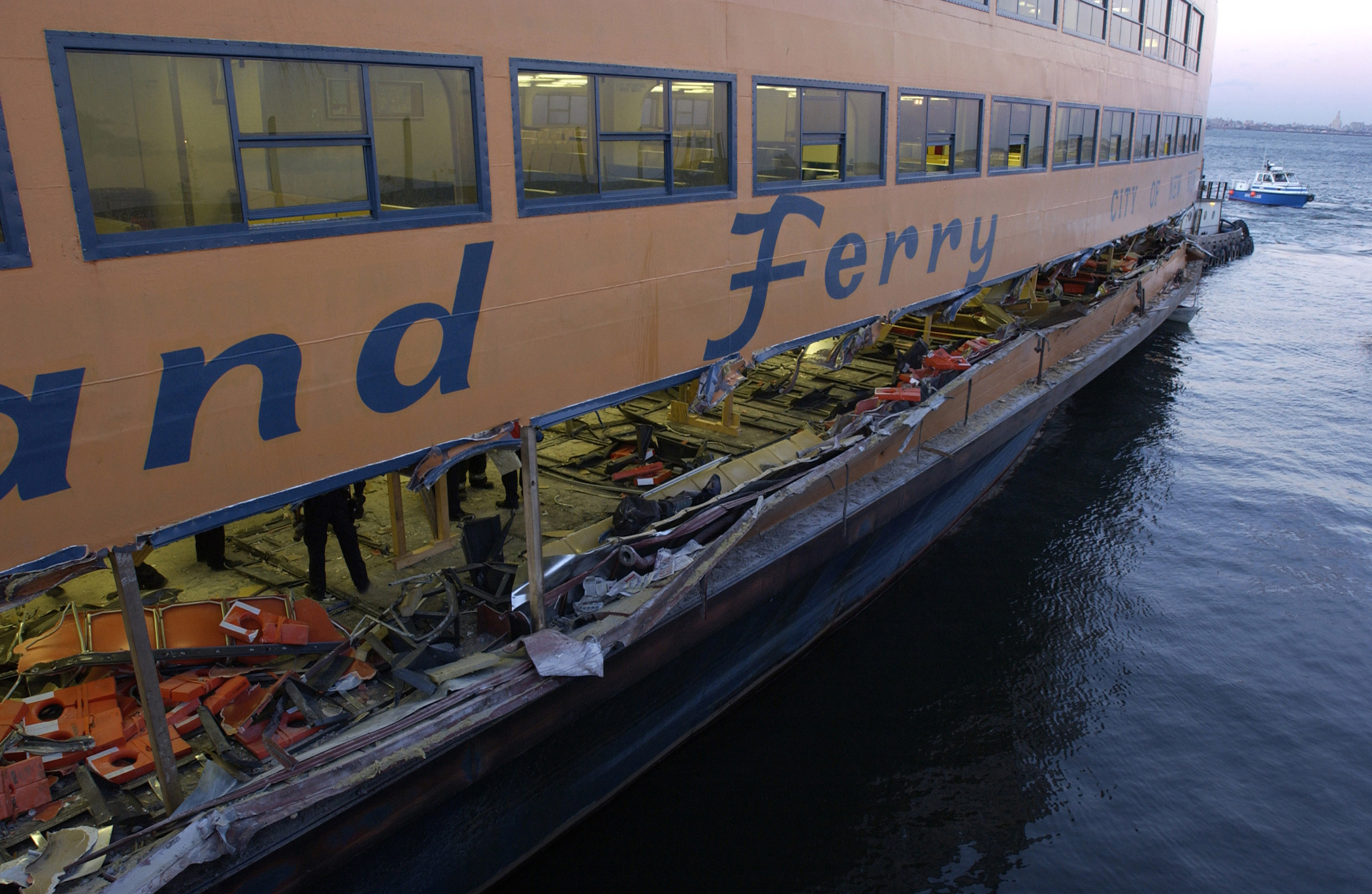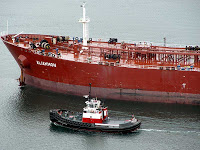Engineers get vocal
 Ship’s Engineers are generally not the boastful, talk for the talk sake types, so generally when a group of them speaks up, it is probably worth a listen. After all, marine engineers are major partners in the pursuit of a ship’s ability to perform safely, with optimum quality and efficiency.
Ship’s Engineers are generally not the boastful, talk for the talk sake types, so generally when a group of them speaks up, it is probably worth a listen. After all, marine engineers are major partners in the pursuit of a ship’s ability to perform safely, with optimum quality and efficiency.
Today, the West Coast Ship’s Officer Association release a pointed press release, highlighting a simmering situation at BC Ferries, the company that runs a large fleet of vessels on British Columbia’s coast, and is an intrinsic part of life in Western Canada. It’s been awhile since I visited the association’s website, its been around for over 10 years now, starting as a forum, drawing together the grassroots of BC Ferries officers corp.
Although I am not intimate with its genesis, the forum as always been a loosely organized stewing pot of ideas and gripes within the officer corp of the company. Several years ago, the hot topic was the Ferry and Marine Workers Union, predominately made up of ratings and hotel staff, “leading the discussion”, leaving the union’s officer component feeling “left out in the cold”.
I think it is safe to say that this is a shot across the bow of the company’s management team. For some time, BC Ferries appears to be adopting a divide and conquer approach to the union. In September they were provided with the ammunition to carry this out. The murkiness of the whole situation, has evidently led to a considerable vocal opposition, leading to this press release, by an entity not affiliated with their official union.
Below is the full press release, and you can find more information, here, on the association who described itself as “…marine engineers, not journalists; ships’ officers, not writers, or editors”. They also have a media area that frames their point of view, you can find that here. Local media CKNW’s blurb is here. Here’s another slightly BC Ferries related newsbit…
Media Release -March 28, 2011
BC Ferries Engineers Sound Alarm
 Senior ships’ officers aboard BC Ferries (BCF) are increasingly wary and frustrated about current high pressure management initiatives to exclude them from long-standing membership in the BC Ferry and Marine Workers Union.
Senior ships’ officers aboard BC Ferries (BCF) are increasingly wary and frustrated about current high pressure management initiatives to exclude them from long-standing membership in the BC Ferry and Marine Workers Union.
More than 80% of senior ships’ engineers are believed to have refused offers of excluded positions, with salaries and promises of bonuses well above their existing union pay scale. They say it isn’t about money.
They fear that losing the protection of collective representation will constrain highly trained, certified and experienced employees from voicing professional concerns about important matters, most notably: public safety and environmental issues.
Engineers’ officers were excluded from the protections of the Labour Relations Code by the decision of a single arbitrator in September, 2010. They are asking the corporation to halt implementation of the unilateral exclusion process while an appeal is underway and currently before the Labor Relations Board.
As well, they are once again calling on BCF executives to consult with them to discuss and resolve any problems that management identifies in relation to union membership.
As part of the LRB hearing on exclusions, the corporation submitted sworn statements which included generalizations regarding BCF Ship’s officers – who ensure safety onboard – that were both negative, and misleading, engineers are saying.
Senior ships’ officers are utilizing The West Coast Ship Officers’ Association (www.WCSOA.com) – a support forum formed in the 1990s – to share information.
Contrary to controversial BCF statements, ships’ officers have a keen interest and key role in implementing and achieving safety, dependability, efficiency, and other BC Ferries goals and objectives.
Like experienced technicians with similar positions on aircraft, oil rigs and power plants, BCF engineers work as supervisory employees far removed from office desks. Their responsibilities include reporting to governing bodies and regulatory authorities.
 In January, 2011, engineers from the WCSOA requested a meeting with BCF president David Hahn. His response to their requests to sit down with them was resoundingly negative: “To be clear, I will not be partaking in any meeting with an organization that has no standing and our plan on exclusions is proceeding as planned.”
In January, 2011, engineers from the WCSOA requested a meeting with BCF president David Hahn. His response to their requests to sit down with them was resoundingly negative: “To be clear, I will not be partaking in any meeting with an organization that has no standing and our plan on exclusions is proceeding as planned.”
The world is awash in disasters resulting from risky cost-cutting measures, dangers of pollution, unsafe practices, hazards and myriad other problems which are most apparent to those whose job and skills are focused on monitoring these matters on the scene, on an hourly basis, in this case, below deck. Engineers want to retain this role.
For more than five decades ships’ officers in BC have earned widespread public trust and confidence, as well as an international reputation for excellence. They are now calling on the corporation, government, the LRB, and the public to continue to support a proud tradition of safety, dependability and service in a proven integrated ferry system.
Pictures from various internet sources.




This is not true.Ferry engineers are overpaid for what they do comparatively to the rest of the shipping industry.
The main objective of this noise is to keep those bloated salaries funded by public money and get away with lethargic work style.
– a Former BCF engineer
Actually Mr."Former BCF engineer"(More like david hahn's lacky),
We are underpaid for the Marine industry.Chief engineers on deep sea vessels make 250,000+ yearly plus bonus.
At BC Ferries they make 120,000 +/-. no bonus.
Go to this site and see for yourself what a Chief engineer needs to know to get his ticket.
http://www.tc.gc.ca/eng/marinesafety/tp-tp2293-chapter26-1774.htm
The new excluded managers will make more money due to bonuses. end of story.
guess how they will get those bonuses. Saving money by cutting back on the yearly budget of the engineering team on each vessel.
That means less work getting done due to no spare parts available,
no nuts and bolts etc….
April 1st is when the company is implementing the exclusions of Senior chief engineers, the people who control the budget of each vessel.(April fools day)
It's already happening right now, Take for example The Spirit of Vancouver Island based out of swartz bay, right now the managers are making the engineers change perfectly good Main engine driven lube oil pumps just because they don't want the new ones (emergency spares) sitting on the shelf's because they cost $300,000+ each and it looks bad for the books and the bean counters, having them sit around as spare parts.
We now have no spares and are not getting more.
When they make us do these types of jobs during a graveyard shift, there is no time to inspect critical safety systems, it is a all night job to change those pumps to have it running for the first sailing.
And the Managers say "Safety is #1".
I completely support the engineers and employees of BC Ferry Services!
– A Former BC Premier
>>We are underpaid for the Marine industry.Chief engineers on deep sea vessels make 250,000+ yearly plus bonus.
At BC Ferries they make 120,000 +/-. no bonus.
I wish….
I left a C/Es job on a 7 year-old platform supply vessel because the salary was £49,000 – or about $75,000. Despite the price of oil ramping up exploration, I've been unable to find anything better, so took a position as 1/E on a dive support vessel at C$108,000.
I worked as a C/E at BCF for 8 years before moving away from B.C. so I know wereof I speak; certainly, there are pressures involved – whether from having to keep the schedule or doing oil pump changes on graveyard shifts (nice that you have some time when the engines aren't running…) but try being responsible for repairing a break-down on a ship which charters out at a quarter-million a day! And you get to go home at night…. that must be worth a few dollars.
Regards,
Max
And oh, yeah… How many hours are on your 'perfectly good' oil pumps?Although they are Wartsilas and not MANs, our lube oil pumps have to be 'inspected and worn parts replaced' – that's shaft, bearings, bushings, gearwheel etc. – every 8000 hrs. They have to come out for inspection anyway, so it's much better just to replace them with spare units, overhaul the old ones and put them back into spares inventory. You think they're going to throw out the ones you're replacing?
Max
http://www.cbc.ca/bc/news/061019_affidavit.pdf
Good Heavens! How on Earth have they managed to pass Ship Safety surveys and annuals, Class inspections and both internal and – more importantly – external SMS/ISM audits since 2006? The magnitude of the conspiracy is staggering!
This discussion might be better pursued in the forum section?